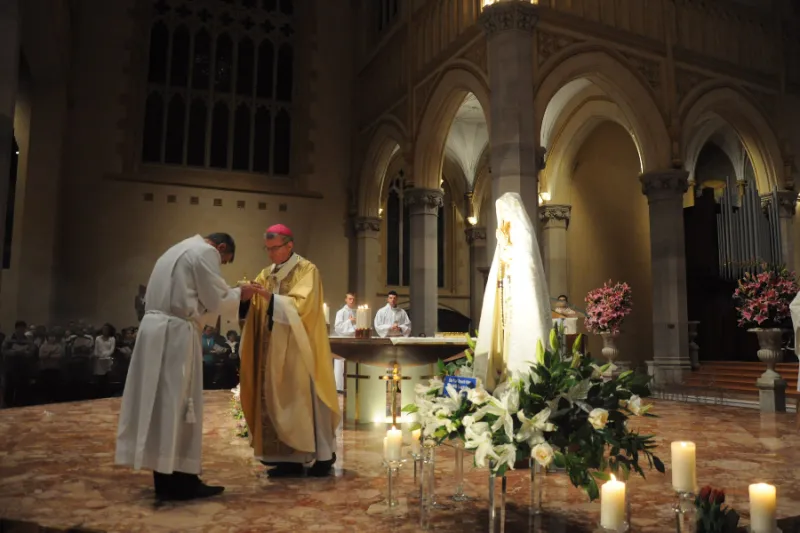Yangon, Burma, Nov. 29, 2017 / 3:34 a.m. (CNA/EWTN News).- In a meeting with Buddhist monks in Burma on Wednesday, Pope Francis stressed that true and lasting justice and peace can only be achieved if the dignity of all people are protected.
“Authentic justice and lasting peace can only be achieved when they are guaranteed for all,” Pope Francis said Nov. 29.
He stressed that his meeting with the Buddhist monks is an opportunity to strengthen the bonds of friendship between Catholics and Buddhists as well as “to affirm a commitment to peace, respect for human dignity and justice for every man and every woman”.
Pope Francis met with the State Sangha Maha Nayaka Committee, a group that oversees Buddhist clergy in Burma, at the Kaba Aye Buddhist Complex, which includes the Kaba Aye Pagoda, just 6 miles north of Yangon.
The meeting took place during the Pope’s meeting from November 27 to December 27. 2 apostolic journey to Burma – also known as Myanmar – and Bangladesh, which comes amid a severe increase in state-sponsored violence against the Rohingya, a predominantly Muslim ethnic group who reside in the state Burmese from Rakhine.
In recent months, the violence has reached staggering levels, leading the United Nations to declare the situation “a classic example of ethnic cleansing”.
“In every era, humanity experiences injustices, moments of conflict and inequality between peoples. These days these difficulties seem to be particularly pronounced,” the Pope said.
Even though we have made great advances in technology and people around the world are increasingly aware of “their common humanity and destiny”, he said, “the wounds of conflict, poverty and of oppression persist and create new divisions”.
“In the face of these challenges, we must never resign ourselves,” he continued, because our “respective spiritual traditions” show us the way forward, “a way that leads to healing, mutual understanding and respect. A path based on compassion and benevolence.
Myanmar’s religious makeup is predominantly Buddhist, with 89% of the population practicing the Theravada Buddhist tradition. During the meeting, Pope Francis expressed his esteem for those who follow the Buddhist tradition in Burma, saying that through their religion, the people “have been formed in the values of patience, tolerance and respect for life”. .
A big challenge today, Francis said, is to help people open up to the “transcendent,” to know each other in a way that “realizes that we cannot be isolated from each other.”
But if we want to be united, we must work to overcome “all forms of misunderstanding, intolerance, prejudice and hatred”, he said, noting that the words of Buddha and Saint Francis can offer a guide on how to do it. .
In Dhammapada, Buddha says to “overcome anger with non-anger; overcome the wicked with good; overcome the miser by generosity; defeat the liar with the truth,” the pope quoted.
A similar message is found in a prayer attributed to Saint Francis of Assisi, he notes: “Lord, make me an instrument of your peace. Where there is hate, let me sow love. Where there is hurt, let me bring forgiveness… Where there is darkness, let me bring light, and where there is sadness, joy.
May the wisdom contained in these words, he said, continue to inspire patience and understanding, “to heal the wounds of conflict that over the years have divided people of different cultures, ethnicities and of different religious beliefs”.
He stressed that overcoming conflict and injustice is not just the job of religious leaders, but of society as a whole, although it is especially the responsibility of religious and civil leaders to ensure that everyone’s voice be heard.
Francis said that for this work to bear lasting fruit, religious leaders will have to work together in even greater collaboration, saying that in this, “the Catholic Church is a willing partner”, ready to continue walking together on the path of “peace and healing, compassion and hope.
He also hailed the two-day peace meeting organized by the local Catholic bishops‘ conference in April – which included leaders from different religious communities as well as ambassadors and representatives of non-governmental agencies – as “essential” to deepen the mutual understanding.
[…]

